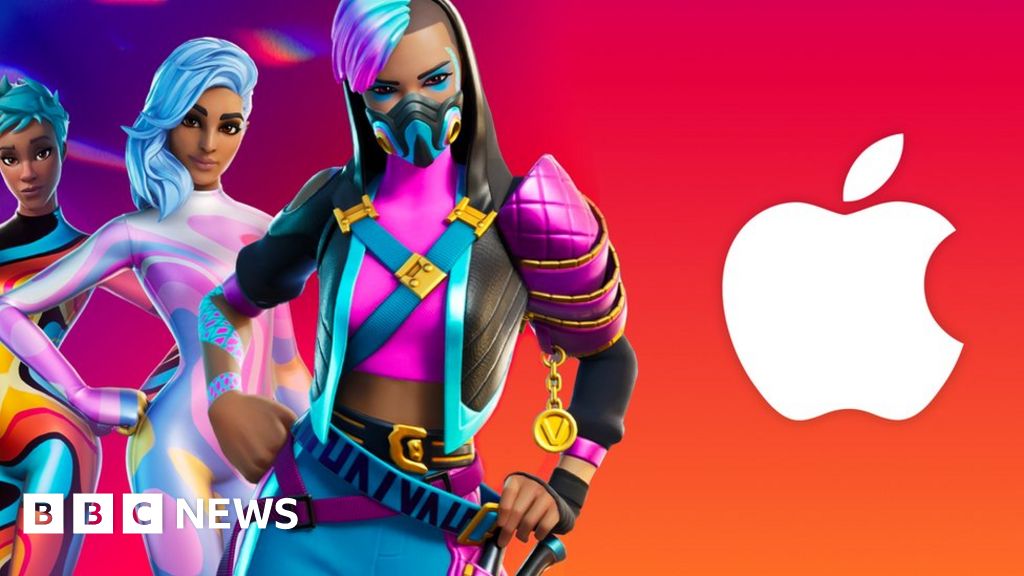

And you'd have economic competition." After Apple stated that cloud gaming services like Microsoft's xCloud were not allowed on the iOS platform as they would allow content that bypassed Apple's content review, Sweeney wrote "Apple has outlawed the metaverse. Sweeney further stated that "If every developer could accept their own payments and avoid the 30% tax by Apple and Google we could pass the savings along to all our consumers and players would get a better deal on items. Sweeney said in a July CNBC interview that "Apple has locked down and crippled the ecosystem by inventing an absolute monopoly on the distribution of software, on the monetization of software", and "Google essentially intentionally stifles competing stores by having user interface barriers and obstruction". In mid-2020, Sweeney reiterated his stance on the 30% revenue cut that Apple and Google took, ahead of a large United States Congressional hearing investigating antitrust charges on the Big Tech companies including Google, and during similar investigations of Apple in the European Union. As Apple does not allow sideloading on iOS devices, Epic had just released the client on the App Store directly in 2018. However, this resulted in a number of security concerns and numerous unscrupulous clones attempting to pass themselves off as the real Fortnite game in the Google Play store, and by April 2020, Epic discontinued the sideloaded version and placed the game on the Google Play store.
#Epic games fortnite android
When Epic first released its Android client, it offered it as a sideloaded package rather than as a Google Play store app, as they did not want Google to take any revenue from the microtransactions in the game. Īs Fortnite expanded from personal computers to other platforms with the popularity of the Battle Royale mode in 2018, Epic Games sought to bring the free-to-play game to mobile devices. Part of the reasoning for creating the Epic Games Store was to demonstrate that Epic could operate at a lower revenue cut (12%). While a 30% revenue cut was an industry standard across computers, consoles, and mobile platforms in 2019, Sweeney stated that higher revenue shares made sense on consoles where "there's enormous investment in hardware, often sold below cost, and marketing campaigns in broad partnership with publishers", but did not extend to open platforms like mobile devices and personal computers. Since as early as 2015, Epic Games' founder and CEO Tim Sweeney had questioned the need for digital storefronts like Valve's Steam, Apple's App Store for iOS devices, and Google Play, to take a 30% revenue sharing cut, and argued that when accounting for current rates of content distribution and other factors needed, a revenue cut of 8% should be sufficient to run any digital storefront profitably. However, Google has stressed that the legal situation around their case is not the same around Apple's.

#Epic games fortnite update
Google, the same day, which challenges Google's similar practices on the Google Play app store for Android, after Google pulled Fortnite following the update for similar reasons as Apple. Epic has appealed the ruling.Įpic also filed another lawsuit, Epic Games v. Rogers prohibited Apple from stopping developers from informing users of other payment systems within apps. In a September 2021 ruling in the first part of the case, Judge Yvonne Gonzalez Rogers decided in favor of Apple on nine of ten counts, but found against Apple on its anti-steering policies under the California Unfair Competition Law.
#Epic games fortnite trial
The trial ran from May 3 to May 24, 2021. Apple filed a countersuit, asserting Epic purposely breached its terms of contract with Apple to goad it into action, and defended itself from Epic's suit. Epic implemented changes in Fortnite intentionally on August 13, 2020, to bypass the App Store payment system, prompting Apple to block the game from the App Store and leading to Epic filing its lawsuit. Epic Games' founder Tim Sweeney had previously challenged the 30% revenue cut that Apple takes on each purchase made in the App Store, and with their game Fortnite, wanted to either bypass Apple or have Apple take less of a cut. Epic Games specifically had challenged Apple's restrictions on apps from having other in-app purchasing methods outside of the one offered by the App Store. Apple is a lawsuit brought by Epic Games against Apple in August 2020 in the United States District Court for the Northern District of California, related to Apple's practices in the iOS App Store. While Apple is not considered a monopoly and did not engage in anti-trust behavior on nine of ten counts, Apple’s conduct in enforcing anti-steering restrictions is anticompetitive.Įpic Games v. United States District Court for the Northern District of California


 0 kommentar(er)
0 kommentar(er)
